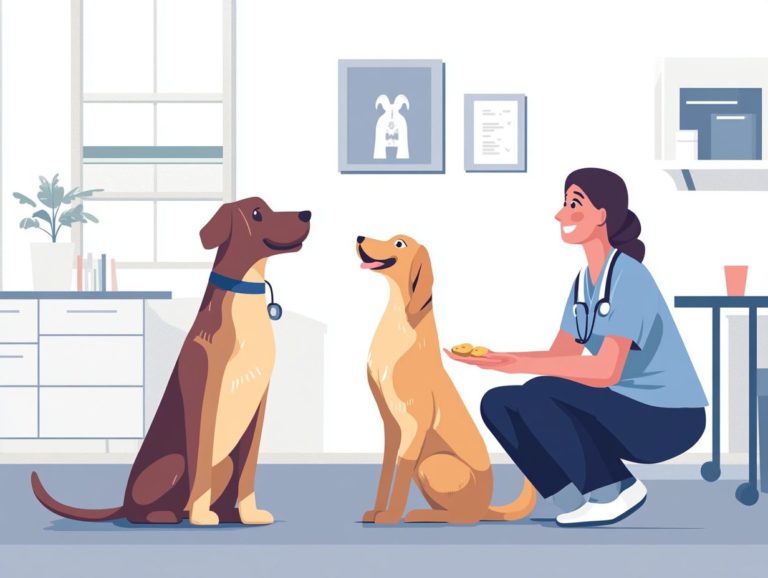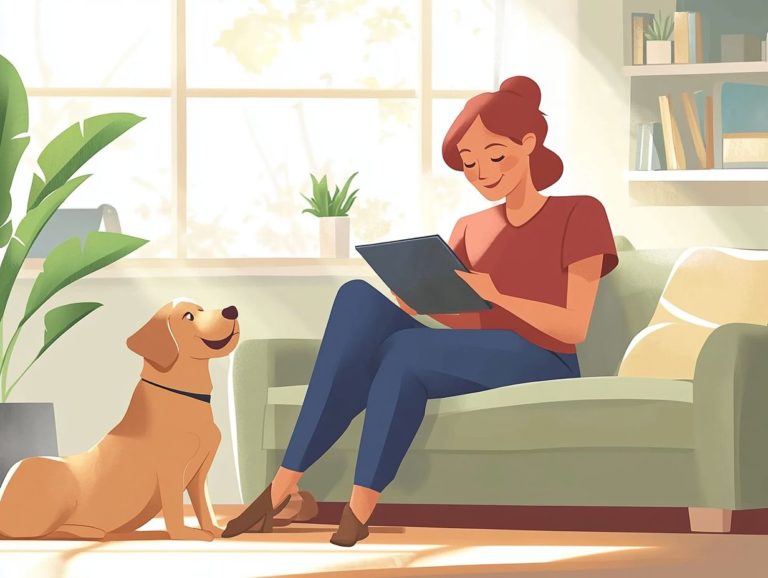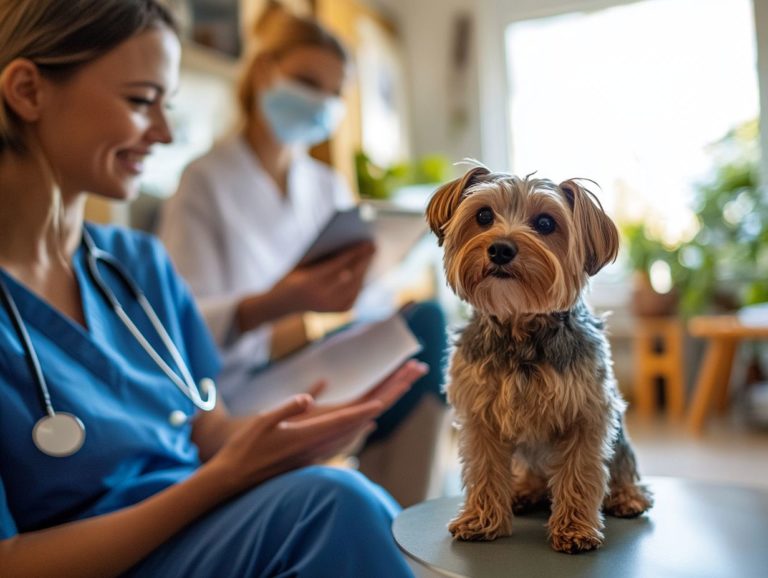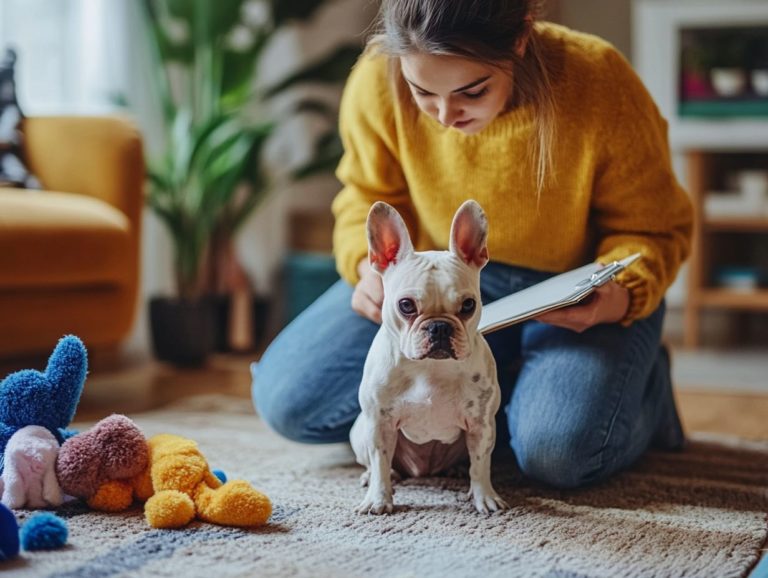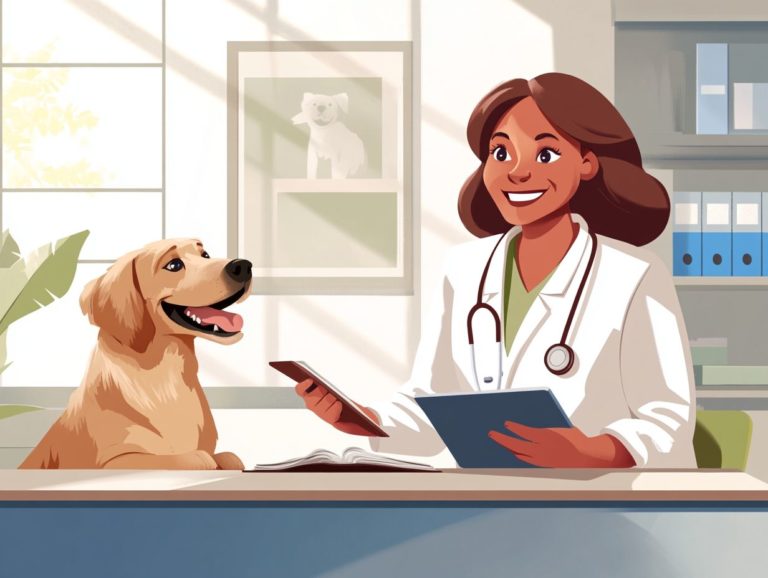The Role of Nutrition in Pet Anxiety Solutions
Are you worried about your pet’s stress levels? Understanding the link between nutrition and anxiety could be the key to their happiness. Knowing how to connect nutrition and pet anxiety is essential for any pet owner aiming to elevate their furry friend’s well-being.
Just like us, animals can face stress and anxiety, often influenced by their diets. This article delves into how what your pet eats can affect their anxiety levels. It highlights important nutrients that foster calmness, natural supplements for anxiety relief, and effective feeding strategies.
You’ll also uncover other environmental and behavioral factors that may contribute to your pet’s stress. By discovering the right nutritional approach, you can significantly enhance your pet’s emotional health.
Contents
- Key Takeaways:
- The Connection Between Nutrition and Pet Anxiety
- Nutrients that Help with Pet Anxiety
- Supplements for Pet Anxiety
- Feeding Strategies for Anxious Pets
- Other Factors that Influence Pet Anxiety
- Frequently Asked Questions
- What is the role of nutrition in pet anxiety solutions?
- How can nutrition help in reducing pet anxiety?
- Are there specific foods that can help with pet anxiety?
- Can a poor diet contribute to pet anxiety?
- Do different types of pets require different nutrition for managing anxiety?
- Is nutrition the only factor in addressing pet anxiety?
Key Takeaways:
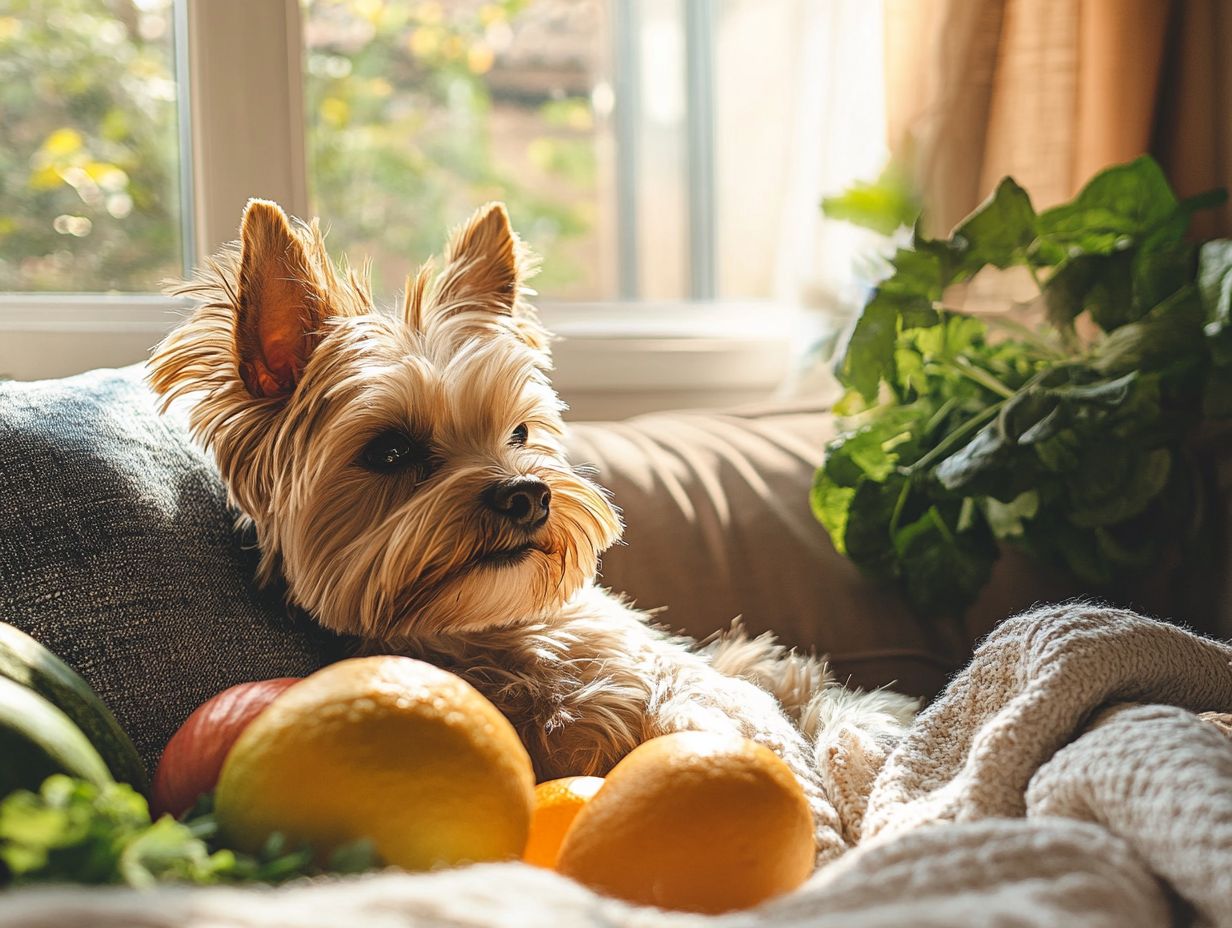
- Proper nutrition is vital for managing pet anxiety.
- Key nutrients like certain vitamins and minerals promote calmness.
- Natural supplements and strategic feeding can effectively reduce anxiety.
The Connection Between Nutrition and Pet Anxiety
The intricate connection between nutrition and pet anxiety is an increasingly important topic for discerning dog owners and veterinary professionals alike. A balanced diet can profoundly impact your dog’s emotional state and overall mental well-being, making veterinary advice essential in managing this issue.
Research suggests certain nutrients can enhance gut bacteria, playing a crucial role in alleviating anxiety symptoms in your canine companions. Additionally, understanding the role of outdoor play in pet anxiety is essential, as brands like Purina are recognizing this trend and emphasizing the significance of a carefully tailored diet to address these pressing concerns.
How Diet Can Impact Anxiety Levels
Your dog’s diet can influence their anxiety levels. Certain food allergies and nutritional gaps may intensify stress and anxiety symptoms.
When considering your canine companion s nutrition, specific dietary components can truly make a difference. Probiotics promote gut health, leading to improved mood and reduced anxiety.
Additionally, omega-3 fatty acids, commonly found in fish oils, help lower stress levels in dogs, potentially enhancing their overall well-being.
Many dog food formulations now cater to these needs, offering blends rich in these beneficial ingredients. These options not only support your dog’s physical health but also help cultivate a calmer and more balanced emotional state, giving you peace of mind as a devoted pet owner.
Nutrients that Help with Pet Anxiety
Certain nutrients hold significant importance in alleviating anxiety in dogs. As a dog owner, it’s essential to grasp the key vitamins and minerals that can enhance your pet’s emotional health and overall well-being.
Understanding these elements enables you to provide the best support for your furry companion.
Key Vitamins and Minerals for Calming Effects
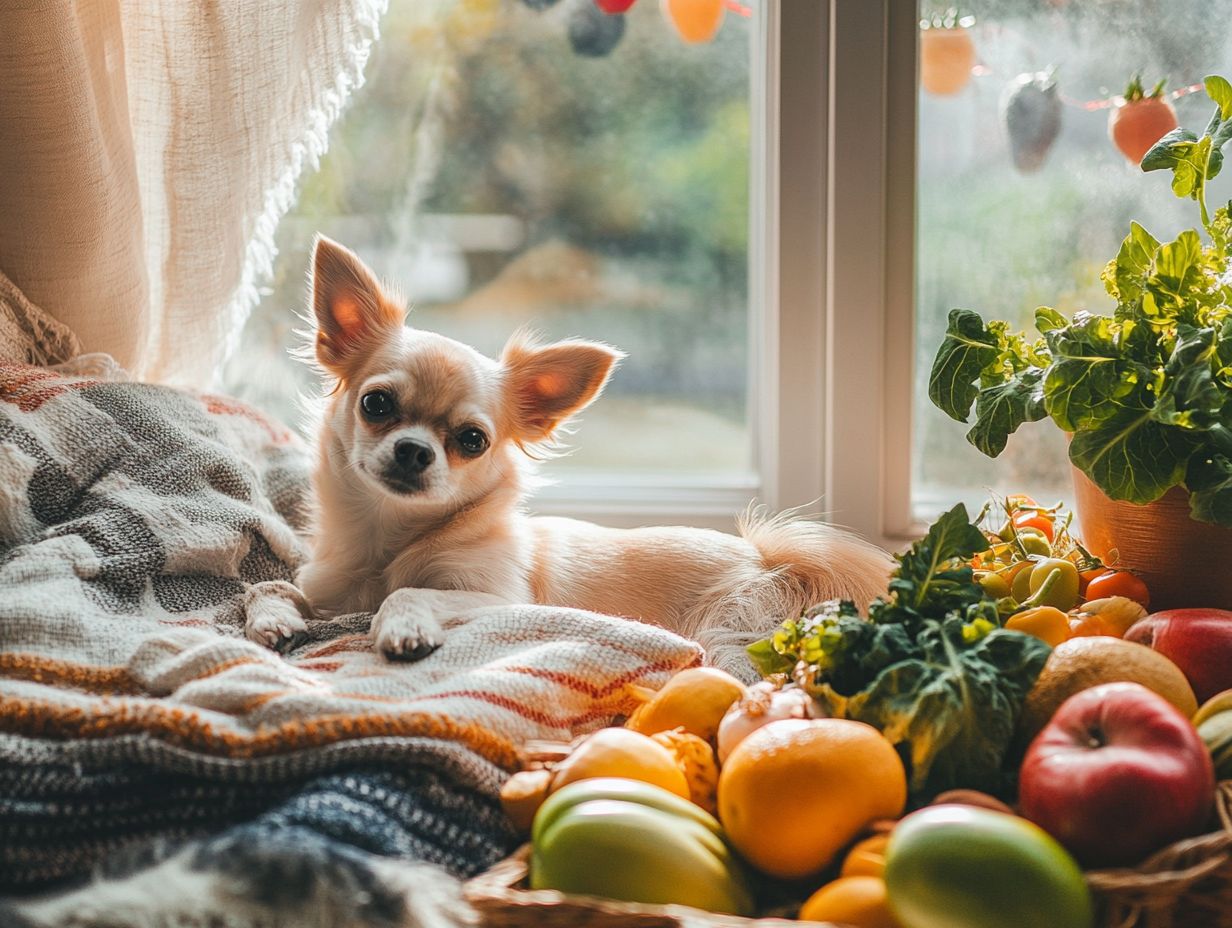
Certain vitamins and minerals are essential for promoting calming effects in dogs, directly influencing serotonin production and helping you manage anxiety disorders in your furry friend.
For example, B vitamins, particularly B6 and B12, are crucial for synthesizing brain chemicals like serotonin, which can enhance mood and reduce stress. Magnesium helps regulate nerve function, preventing irritability, while zinc supports overall brain health.
L-theanine, an amino acid found in tea, promotes relaxation by increasing levels of calming neurotransmitters in the brain, effectively enhancing emotional well-being.
You can easily incorporate these nutrients into your dog’s diet by selecting high-quality foods enriched with these vitamins and minerals or by adding natural supplements like pumpkin or fish oil, both known for their health benefits.
Supplements for Pet Anxiety
Dog owners are excitedly turning to supplements as a game-changing solution for managing pet anxiety. They are on the lookout for natural options that can truly cater to their dog’s distinct nutritional needs.
For personalized advice on your pet’s nutrition and well-being, consult your veterinarian.
Natural Supplements for Anxiety Relief
Natural supplements are trending for alleviating anxiety in dogs, offering a range of calming products that are both research-backed and endorsed by veterinary care.
These alternatives provide options beyond conventional medications and aim to harness the power of natural ingredients. Substances like valerian root, chamomile, and L-theanine are often highlighted for their soothing properties. For example, valerian root supports relaxation by influencing chemicals in the brain that help transmit signals, while chamomile may gently sedate through its flavonoid content.
L-theanine, an amino acid found in green tea, can help promote a sense of calm in your dog without making them drowsy. It s essential to consult with a veterinarian before introducing any supplements, as they can help you create a safe and effective regimen tailored to your dog’s health needs.
Feeding Strategies for Anxious Pets
Adopting effective feeding strategies for anxious pets can significantly enhance their stress management and overall emotional well-being. As a dog owner, being mindful of meal timing and portion sizes can greatly improve your furry friend s comfort and happiness.
Meal Timing and Portions for Calming Effects
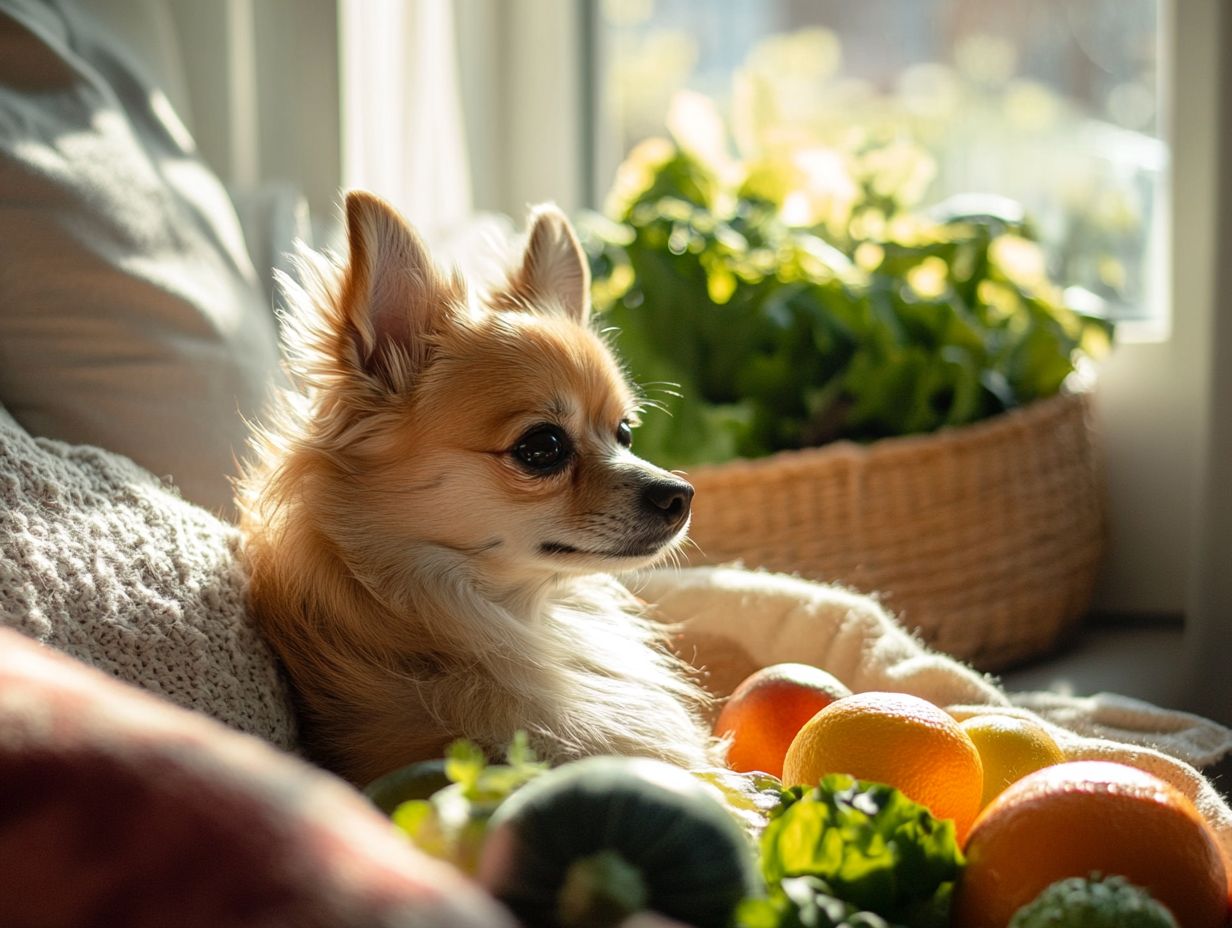
The timing of meals and portion control can work wonders for your dog, creating a calming effect that stabilizes their digestive health and emotional well-being.
When you establish a consistent meal schedule, your dog anticipates those feeding times, fostering a sense of security that can reduce anxiety. Adding smaller, more frequent portions helps prevent overeating and digestive discomfort, further promoting tranquility. For example, providing a well-balanced diet enriched with nutrients tailored for anxious pets can elevate their overall well-being.
Creating a quiet, serene feeding environment minimizes distractions, allowing your dog to dine peacefully. By implementing these best practices, you can significantly improve your dog’s happiness and lead to a more relaxed companion.
Other Factors that Influence Pet Anxiety
While nutrition is crucial, it’s essential to recognize that other factors also contribute to pet anxiety. Understanding the role of veterinary professionals in pet anxiety highlights environmental aspects and behavioral issues as significant elements to consider alongside dietary interventions.
Environmental and Behavioral Factors to Consider
Understanding the environmental and behavioral factors that contribute to anxiety in dogs is crucial for effective management and creating a supportive atmosphere. Various elements, such as loud noises from fireworks or construction, can significantly agitate pets, leading to distressful behaviors like excessive barking or hiding.
Changes in routine like a departure from a regular walking schedule or disruptions during feeding times can heighten anxiety levels even further. Socialization is also very important; when dogs lack proper exposure to new people, environments, or other animals, their uncertainty can manifest as fearful behaviors.
Insights from veterinary care typically advocate for a balanced approach, integrating behavioral therapies with holistic remedies, such as herbal supplements, to provide relief and enhance overall well-being.
Frequently Asked Questions
What is the role of nutrition in pet anxiety solutions?
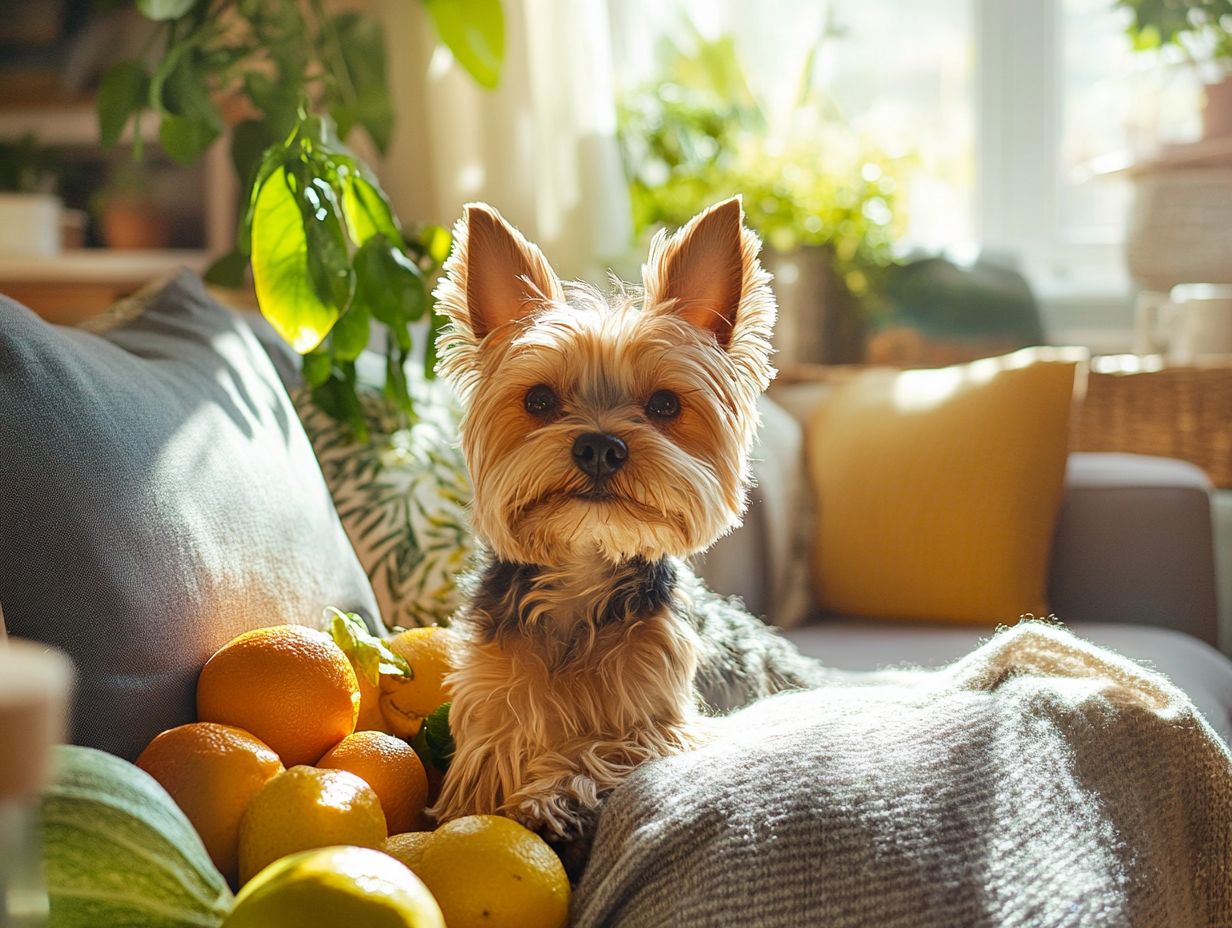
Nutrition plays a vital role in addressing pet anxiety by providing essential nutrients that can help calm and soothe their nerves, as outlined in understanding the role of diet in pet anxiety.
How can nutrition help in reducing pet anxiety?
Certain nutrients, such as L-tryptophan and B vitamins, have calming effects on pets and can help reduce anxiety levels, making it important to understand your pet’s anxiety and its causes.
Are there specific foods that can help with pet anxiety?
Yes, foods high in Omega-3 fatty acids and magnesium have been found beneficial in reducing pet anxiety.
Can a poor diet contribute to pet anxiety?
Yes, a poor diet can lead to nutrient imbalances. This can increase anxiety and cause behavior problems in pets.
Do different types of pets require different nutrition for managing anxiety?
Yes, each type of pet needs different foods. It’s best to ask your veterinarian what to feed your pet.
Is nutrition the only factor in addressing pet anxiety?
No, nutrition is only part of managing pet anxiety. Don’t forget! You should also ensure your pet has a supportive environment and gets the training and social skills they need to thrive!

